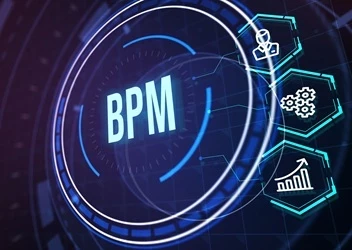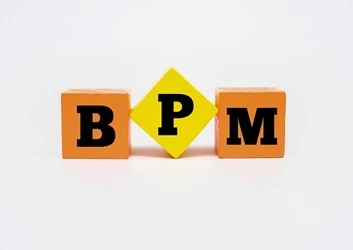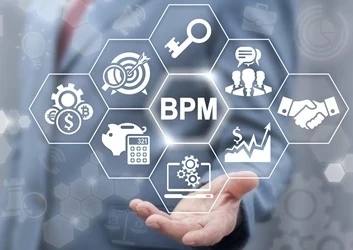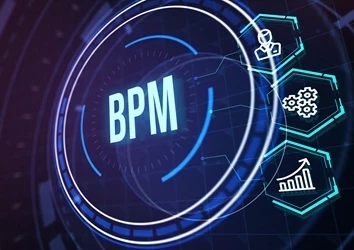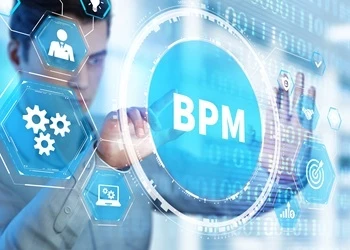Appian's CEO Matthew Calkins on "facilitating" work and the mobile future (Transcript)
Add bookmarkBPM Software has sometimes been criticized for forcing people to work in a way that is inflexible and "one size fits all". While automating processes should increase efficiency and cycle times, it may also make it more difficult to change processes as requirements change and force people to find workarounds to their existing systems. It’s time for the industry to think less about being a "work automation platform" and more about being a "work facilitation platform," says Matthew Calkins, Chairman and CEO of Appian in this PEX Network interview, part of the Boardroom Perspectives series. | Time to "facilitate" rather than just automate work? |
Calkins argues for a future where BPM Software helps to automate not just highly structured processes but also facilitates collaboration and support for the ad hoc processes that make up the majority of work in modern enterprises.
Calkins, who founded Appian 1999, also discusses why BPM Software needs to reflect how people actually work and why the convergence of desktop and mobile computing will be one of the key trends driving the software industry forward in the years ahead.
Note: this is a transcript of podcast. To listen to the original podcast, click here.
This transcript has been edited for readability.
PEX Network: I understand that you set Appian up in a friend's basement, with $5,000 in savings. Was there ever a point in those early days that you wondered what am I doing?
Matthew Calkins: It was actually my own basement! At first I started the company in an apartment and when it grew I realised I needed a basement. Most people start with a garage or they have a basement before they begin their company. But I needed to acquire a garage and a basement in order that my company could grow. After that we got to "real" real estate.
I never ever thought "what am I doing?" I think I erred on the other side. I was over-confident; it was the late 90s and the tech boom was in full swing. I felt that I was certain to succeed. Later events showed that there's much more uncertainty in business than I anticipated. But no, I didn't have any doubts at the time.
PEX Network: What was the thinking behind your company's name?
Matthew Calkins: I'm an historian and I love history so I wanted a name that was classical - Appian being the highway from Rome. I also wanted the name to be ambiguous, so that we could change our markets as we went forward. Then I also preferred that it would be early in the alphabet so that whenever we sponsor a show or a conference we get our name at the top of the list of people who donated the same amount of money. I'm always fearful that someone will come along and name their BPM company something like AAA Software and get ahead of us. But it hasn't happened yet.
PEX Network: You mentioned that you're very interested in history. What are your other sources of inspiration? Where do you look to, for inspiration on what's coming next in the BPM industry?
Matthew Calkins: In my industry - Business Process Management - we automate work. We take what people do as a part of their jobs and we write it in software, and we allow them to work through software in order to take the decisions and the actions that they need to do in order to work effectively.
That means that we're modelling and conforming to the way work actually happens in real life outside of software. My inspiration, therefore, is my observing how work really happens in the absence of software. I try to come as close to facilitating it in the way that it wants to work as I can. And that generally means reducing the impedance in the action of taking work.
I don't want software that makes very rigorous what a few people do but alienates everybody else because it's too complicated. In my opinion software is better if it gets more participants. In fact the best feature we could possibly write would be one that would include everybody, which is why Appian's priority is ease of use. I believe we should be as elegant and frictionless as possible and as fun to use as possible, so that we get the maximum amount of participation and we never alienate any of our potential users. So I'd say inspiration comes from observing the way work actually happens and conforming to those patterns as much as possible in our software.
PEX Network: What do you think will be the major enterprise trends driving the industry in the decade ahead?
Matthew Calkins: They're really hard to foretell but there are a few that I think are clear. There's going to be a convergence between the mobile device and the desktop, which is to say they'll both be the way we do work. As such, they should both use the same software and they should both work the same way. So there's going to be a broad convergence between what's possible and how these two devices function.
I also think that they will come together on mobile's terms, which is to say all interfaces will look more like mobile interfaces. All products will work more like mobile products. Mobile has been a revelation to everybody: it made us realise that we didn't need all those little features for the vast majority of the things that we did. We realized that we could fit the functionality we require on a small screen and an easy screen, and it didn't need training.
This is a new way of thinking about software and I think that it opens up new perspectives and new possibilities in our industry. It's such an attractive thought that software doesn’t need to be complicated, it doesn’t need to take a big screen and can still be exceptionally useful and powerful.
I think that thought will dominate software for the next decade. You'll see desktop applications looking elegant and simple and usable, like mobile applications. Then when you switch to mobile devices they'll look exactly the same. So that's one trend I anticipate and we think about that a lot and we're on top of that one.
Another would be the general unification of the three stages in decision making, which haven't been unified in the past. When you make a decision you must first be aware, and then you must be knowledgeable, and then you must take action. That's been difficult to do, all in the same software, heretofore.
For awareness you need merely mass participation; you need people to be plugging into the software all the time. That can be done if you're running on mobile devices and you don't require training because everybody can participate.
Knowledge is easy if you hook into data; that's become simpler now that there's web services and integration has become an easier hurdle to cross.
Finally, action depends on your ability to coordinate with a process, which is what we're all about. We've always been about taking action and automating and structuring action.
So we are going to try to put those three things together. I believe what you'll find is a convergence of industries as we collectively realise that those three actions absolutely belong together. So that's a couple of trends that I see coming.
PEX Network: How do you think those trends will impact BPM software providers? What will BPM software providers need to do in order to respond to some of those challenges?
Matthew Calkins: They'll certainly have to be wiser about mobile. I think we're still the only vendor who is native mobile. Mobile is an essential platform.
As of this year – or maybe next year - mobile will be the world's favourite way to access the internet. It's not yet the world's favourite way to access their enterprise - where they work. But it should be because the mobile device is so useful. I use my mobile device when I'm sitting in my chair, facing my desk, because it's just easier, it's more useful. So the industry has to get on mobile.
But secondly, the industry has to realise that there are vast network effects at work. The more people whose work you can automate, the more people you can bring into that collective environment and the more valuable they're all going to be.
So we need to think less about being a work automation platform and more about being work facilitation. That means taking care of all the things that someone would want to do in the course of their work. It’s not just the highly structured tasks that this applies to but also the improvised tasks, the random little messages you send to somebody and on which you want accountability. How about the little information fetching manoeuvres that you may need to do from time to time, in order to inform your actions?
All of this should be done within the same environment. We should be chasing a broader mission, one of facilitating work rather than just automating it.
PEX Network: You had mentioned that you were the only BPM provider that is effectively mobile native. What else do you think sets Appian apart from other BPM vendors in the market?
Matthew Calkins: I would start with innovation. I think that we've consistently been ahead of the market on innovating. We've been in business for 14 years and we were the first to make a BPM suite; we were the first with real time reporting, the first "thin client", the first cloud, the first native mobile.
We tend to be the pioneer in BPM and that helps a lot. Technology has never been so rewarding of a pioneer as it is today.
This is all done in a very client friendly way also. When we come up with a new innovation we give it to our existing client base for free; there's never been an add on fee or anything like that. We treat our client base like a family.
So innovation is good and yet I would say probably the biggest thing that made us different was our dedication to customer service and to customer outcomes. We've always been very focused on this. We have this ethic at the company that the customer has to win first and we don't win until after the customer wins. So we're very focused on getting a good outcome for the customer.
Every client has my mobile number and I take their outcomes very personally. We send great people to the client because we do extremely tight hiring. Only one person in 200 who applies gets a job here and I do all the final round interviews myself.
I think that if we hadn't been so focused - so committed - to great service and great outcomes that we wouldn't be here today. That's really been the key to our success.
When we got into this market, into BPM, we were bootstrap, which is to say we had no money - no external money - and our top three competitors had a total of more than $250 million from venture capital firms. So we were quite a long shot.
We persevered and we came through that crowd and we're ahead of all of them, and we're ranked in the top two by every analyst in the world. We've got 3.5 million users today but when we started we were really a long shot and I don't think we would have made it had we not had that focus on customer outcomes.
Join Appian and their client Bank of Tennessee for their presentation Customer Engagement from the Inside Out – Using Social and Mobile BPM to Drive Growth on October 10 during PEX Network's inaugural BPM Open House. This free, online presentation series is designed to showcase insightful presentations into what BPM Software can do for you and give you a chance for you to hear what results companies Bank of Tennessee and many others have achieved through BPM. Get your questions answered and hear from leading BPM Software providers.












